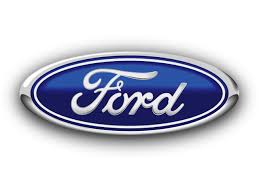Bronco L6-300 4.9L VIN Y 1-bbl (1983)

^
reduced benzene by about one-half
IS CaRFG MORE HAZARDOUS THAN CONVENTIONAL GASOLINES?
CaRFG is a hazardous substance like conventional gasoline. Precautions should continue to be taken to avoid exposure to vapors or liquid when it is
pumped or handled. It should never be siphoned or swallowed.
HOW WILL CaRFG AFFECT VEHICLE PERFORMANCE?
Properly blended CaRFG should have no adverse effect on vehicle performance or the durability of engine and fuel system components. Its basic
properties are not significantly different than other cleaner burning gasolines that have been used in the U.S. for several years.
If the vehicle is a certified California calibration 1996 or later model year, it was designed to operate on CaRFG gasoline. The vehicle will operate
satisfactorily on gasolines in the other 49 states, but emission control system performance may be affected. Using gasolines other than CaRFG have
substantially increased emissions from motor vehicles.
WILL THE USE OF CaRFG AFFECT CALIFORNIA VEHICLE WARRANTY?
No. The coverage of Ford's new vehicle warranty is not affected. In fact, Ford Owner Guides have consistently approved the use of properly blended
reformulated gasolines containing oxygenates. Further information about properly fueling your vehicle is included in the Owner Guide.
WILL FUEL ECONOMY BE AFFECTED?
A very small reduction in fuel economy of less than one-half mile per gallon is possible if the customer was using gasoline without oxygenates. This is
attributed to the lower energy content of oxygenates which have been in all Southern California gasolines since January of 1995 and in some gasolines
since the 1970's.
Many factors affect fuel economy like driving habits, vehicle maintenance, weather conditions, etc. Fuel economy can vary by more than a mile per
gallon from one fill-up to the next with the same gasolines.
For further details see TSB Article 95-12-2 for customer expectations regarding fuel economy.
ARE SPECIAL ADDITIVES NECESSARY FOR CaRFG?
No. It is not necessary to add anything to the vehicle fuel tank after the gasoline is purchased from the service station. California regulations require
deposit control additives in CaRFG to minimize port fuel injector and intake valve deposits.
WILL OLDER VEHICLES OPERATE SATISFACTORILY WITH THE NEW CaRFG?
Older vehicles are expected to operate satisfactorily on CaRFG because vehicles have been operating on gasolines similar to CaRFG for a number of
years. However, considerable testing indicates that older, high mileage vehicles are more susceptible to fuel system problems due to age and normal wear
and tear regardless of whether they are operated on conventional or CaRFG gasolines. Owners of these older vehicles are encouraged to follow their
vehicle manufacturer's recommendations regarding vehicle maintenance.
WILL THE SMELL BE DIFFERENT THAN CONVENTIONAL GASOLINE?
CaRFG is not expected to smell different than the gasoline most vehicles are currently using. If an unusual odor is noticed, it would probably be from
oxygenates. Most service stations use vapor recovery systems to minimize the release of gasoline vapors while refueling.
The use of CaRFG should result in little or no "rotten egg" smell from the exhaust because CaRFG has much lower sulfur than conventional gasoline.
WAS CaRFG TESTED BEFORE INTRODUCTION?
It was tested for over five million miles in more than 800 vehicles under the guidance of CARB including experts representing automobile
manufacturers, gasoline suppliers, fleet operations and government. There was no increase in problems identified with the use of CaRFG.
DOES CaRFG COST MORE?
The price at the pump cannot be accurately predicted, although a modest increase is likely. The price of CaRFG is subject to the competitive forces in the
marketplace. Many factors including production costs, supply and demand, weather, crude oil prices, and taxes affect gasoline prices.
WHERE CAN I GET MORE INFORMATION ON CaRFG?
Additional information within the state of California on CaRFG is available from the California Air Resources Board toll-free at 1-800-922-7349 (within
California only).
